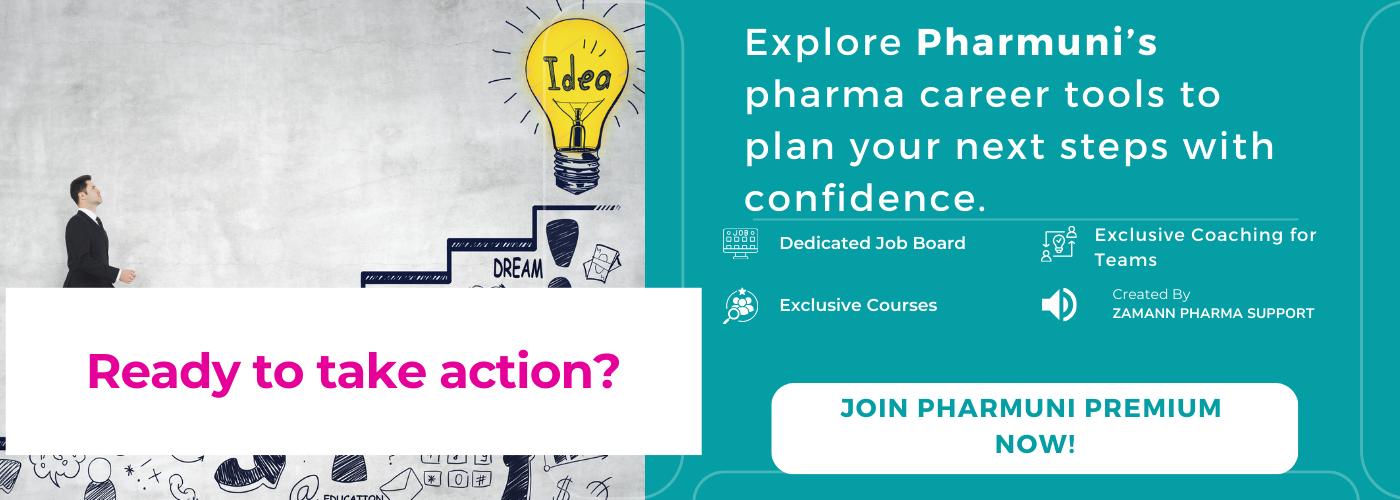Career planning during your first three years on the job is one of the smartest moves you can make. This period shapes your habits, builds your confidence, and lays the groundwork for long-term success. If you approach these years with intention, you’ll gain skills, clarity, and direction. But if you drift without a plan, you may feel stuck or fall behind. That’s why it’s crucial to treat your early career as a foundation for everything that follows.
You don’t need to have everything figured out from day one. But you should know what to aim for. Career planning doesn’t mean locking yourself into one role or industry. It means building the skills, experience, and relationships that open more doors later. When you use your time wisely in those early years, you build a foundation that helps you pivot, grow, and thrive.
In this guide, you’ll learn exactly what to focus on in your first three years on the job. You’ll find actionable tips, key milestones to reach, and a structure to help you succeed. Whether you’re in pharma, tech, education, or any other industry, this roadmap works. Let’s start planning your career with clarity and purpose.

Year 1: Build a Strong Foundation with Career Planning
Your first year is all about adjusting, observing, and learning. You step into a new environment, and everything feels new. That’s okay. Use this year to lay a strong foundation.
Start by learning the ropes. Pay attention to company culture, team dynamics, and unwritten rules. Understand your role fully and ask questions often. This isn’t the time to try and impress everyone by pretending to know it all. Instead, show curiosity and a willingness to learn.
Next, focus on core skills. Identify what skills you need to succeed and begin sharpening them. These include technical knowledge, communication, problem-solving, and time management. Get feedback early and often so you can improve continuously.
You also want to expand your professional circle. Introduce yourself to people outside your team. Attend training sessions and networking events. Build relationships with mentors who can guide you.
Finally, track your progress. Set monthly goals and evaluate what’s working. Document your achievements, even the small ones. This habit helps you prepare for performance reviews and future opportunities.
Year 2: Strengthen Your Skills and Expand Your Network
Your second year is the time to stretch yourself. You’ve got the basics down. Now it’s time to build on them. You should aim to gain depth in your work, strengthen your soft skills, and take more ownership.
Start by mastering your core responsibilities. Get faster, better, and more confident. Don’t just meet expectations—try to exceed them. Look for ways to improve processes or solve problems more efficiently.
Next, expand your visibility. Offer to lead a project or present at a team meeting. Volunteer for cross-functional initiatives. These moments show initiative and build your reputation.
It’s also important to build deeper relationships. Check in regularly with mentors. Learn from peers in other departments. These connections will support you when you need advice or want to explore other roles later.
Year 2 is also when you start thinking about the future. Research possible career paths. Talk to your manager about development opportunities. Enroll in courses or attend industry events. Investing in yourself now pays off later.
Ready to take action?
Top 5 Career Milestones to Achieve in 3 Years
Here’s a list of must-hit goals to reach in your first three years:
Master Your Role
Get confident in your daily tasks. Deliver consistent, high-quality work every time.
Complete a High-Impact Project
Take ownership of a meaningful task. Show that you can lead and deliver results.
Build a Feedback Routine
Ask for regular feedback. Use it to improve and grow faster.
Find a Mentor
Connect with someone experienced. Learn from their insights and avoid common mistakes.
Create a 3–5 Year Career Plan
Set clear goals for your future. Use them to guide your next steps.
Career Planning Through Reflection and Strategy
You grow the most when you stop and reflect. Use Year 3 to review your journey. Ask yourself what you’ve learned, what you enjoy, and what you want next. These questions give you clarity and confidence. cing elit. Ut elit tellus, luctus nec ullamcorper mattis, pulvinar dapibus leo.
At the same time, don’t stop moving forward. Use your insights to shape your next goals. Plan with purpose and adjust your path as needed. When you reflect regularly, you make smarter choices. This balance of action and reflection strengthens your career planning.

Reflecting on Your Growth
Reflection helps you understand your progress. Take time to think about your experiences. Write down your wins, struggles, and lessons. These notes will guide your next steps.
At the same time, look at your habits. Do they help or slow you down? If needed, adjust your routine. Try a journal, app, or weekly review. These tools keep your focus clear. When you reflect often, you learn faster. You also feel more in control.
Strategic Career Planning for Year 3
Now it’s time to plan your next move. Start by setting clear, personal goals. Choose goals that match your strengths and interests. Focus on growth, not just promotions.
Then, take action. Ask your manager about new projects. Join training sessions or apply for certifications. You can also explore new departments or roles. Keep learning, building, and networking. These steps support your long-term vision. With clear goals, career planning becomes exciting, not overwhelming.

Key Soft Skills to Develop in the First 3 Years
Focus on these 5 soft skills to grow faster and succeed in any work environment:
Communication
Express your ideas clearly. Listen actively and adapt your message to different audiences.
Time Management
Prioritize tasks effectively. Stay organized and meet your deadlines with less stress.
Teamwork
Collaborate with others to reach shared goals. Support your teammates and stay flexible.
Problem-Solving
Look for solutions, not just problems. Think critically and act with confidence.
Adaptability
Embrace change and stay calm under pressure. Learn quickly in new situations.
Career Planning Conversations and Personal Branding
Your career grows faster when you talk about it. So, don’t stay silent about your goals. Instead, speak openly with your manager and mentors. These conversations help you align your work with your long-term vision. At the same time, work on how others see you. That’s your personal brand.
When you build it with intention, more people recognize your strengths. As a result, new roles and opportunities often come your way. Both clear communication and a strong brand make career planning easier and more effective.

Have Open Career Conversations
Start by scheduling regular check-ins with your manager. Use these meetings to share your goals. Be honest about what you enjoy and where you want to grow. These talks help your manager support you better.
Next, ask about opportunities. Look for ways to join projects that stretch your skills. Managers often welcome initiative, especially when you show motivation. Always follow up after meetings and stay consistent.
Also, talk with mentors and peers. They give you different views and helpful advice. When you include others in your planning, you avoid blind spots. Over time, these conversations build confidence and direction. So, speak clearly, ask questions, and stay engaged. Career talks aren’t just for yearly reviews. Use them regularly to keep your growth on track.
Develop Your Personal Brand
Your personal brand is how others see you. It shows up in everything you do. So, take control of it early in your career. Start by identifying your strengths. Then, show them through your actions and results.
Next, keep your LinkedIn and resume updated. Share wins and learnings from projects. Add a short summary that highlights what you do best. This helps others remember and recommend you.
Also, speak up in meetings. Volunteer for visible tasks when possible. These moments help others connect you with value and skill.
Your brand grows as you show consistency. So, be reliable, clear, and professional. At the same time, be authentic and stay true to your values. People trust what feels real. In the end, a strong personal brand attracts new roles, mentors, and chances to grow. It supports your career goals every step of the way.

Checklist: Monthly Career Planning Habits
- Review Your Monthly Achievements: List your wins and lessons. This builds confidence and prepares you for reviews.
- Check In with Your Manager: Ask for feedback. Align your tasks with long-term goals.
- Update Your Resume and LinkedIn: Even small updates matter. Keep your achievements fresh.
- Attend a Webinar or Read an Article: Stay current in your industry. Learn something new every month.
- Network with One New Contact: Reach out on LinkedIn or attend a meet-up. One new person can change everything.
- Set a Learning Goal: Pick a topic and go deep. Courses, books, or podcasts all count.
- Reflect on Your Role Fit: Ask yourself if you’re still growing. Adjust plans if needed.
- Track Your Skills: Use a spreadsheet or app to list new skills you’ve learned and want to learn.
Conclusion
Your first three years are critical. Use them to learn, grow, connect, and reflect. Don’t drift—plan. Career planning gives you direction. When you know where you’re going, you make better choices every day.
Take initiative and keep developing. Don’t wait for someone to offer you a path. Create one yourself. Small habits—like monthly check-ins, skill building, and networking—turn into powerful results over time.
Remember, success doesn’t come from working harder. It comes from working smarter and with purpose. So stay curious, stay focused, and take action. Your future self will thank you.
References:
[1] Indeed Career Guide – How to Make a Career Plan
[2] Forbes – 5 Career Planning Tips That Can Help You Get Ahead
[3] Harvard Business Review – How to Take Control of Your Career Development
[4] LinkedIn Learning – Skills for Career Success
[5] The Muse – The 3-Year Career Plan That’ll Keep You Motivated

Stephanie Männicke
Digital Marketing Especialist at Zamann Pharma Support, brings 8 years of experience in Corporate and Digital Communication. Specializing in Digital Marketing and Content Creation, Stephanie is currently focused on creating strategic content for Pharmuni's networks, especially content on topics such as recruitment, onboarding and employer branding. Outside of work, Stephanie is a mum, a crocheter and a movie fan. An avid reader and in search of expanding her knowledge, Stephanie is always looking for ways to innovate communication in the digital environment and connect people in a genuine way.

Top Soft Skills Every Pharma Employee Needs in Post-AI Era
AI is reshaping the pharma industry, but soft skills are more important than ever. This guide reveals the top soft skills every pharma professional needs—like emotional intelligence, adaptability, and leadership—to stay competitive, collaborate better, and thrive in a digital world. Learn how to grow these skills and future-proof your career.

Why Monthly Mentor Transform Your Career
Monthly mentor coaching drives consistent career growth with expert support and accountability. Learn why this proven method outperforms one-off advice. Explore the benefits of structured mentorship and take your next step—book your VIP Coaching session now at Pharmuni for maximum impact!

Why GMP Compliance Training Should Be Your Top Q3 Priority
Quarter 3 is the best time to prioritize GMP compliance training. With rising regulatory pressure and frequent audits, training ensures you’re always ready. This guide explores top training topics, common compliance challenges, and how Pharmuni’s Career Path helps you build skills that matter.


